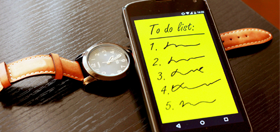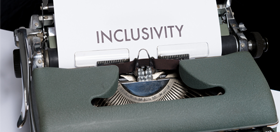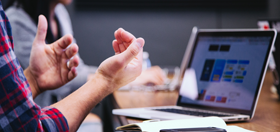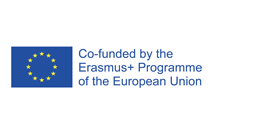
|
|
|
|
|
| |
|
|
|
SHIFT Newsletter September 2020: Inclusion
|
| |
|
|
|
| |
|
|
|
| SHIFT – Sharing Initiatives for Training is an Erasmus+ funded strategic partnership project, bringing together several cultural networks with the ambition to contribute to a better and more sustainable future as recognised in the UN Sustainable Development Goals (SDGs). SHIFT aims to develop training for cultural leaders on the topics of environmental sustainability, gender and power relations, inclusion, and cultural leadership. |
| |
|
|
|
|
|
|
|
No One-Size-Fits-All for Inclusion
|
| |
|
|
|
| |
|
|
|
| Human diversity comprises countless differences in terms of ethnicity, physical abilities, socio-economic status, age, gender, sexual orientation and much more. Our operations across the cultural and creative sectors are also diverse, as is each individual organisation’s range of operations. There is no one-size-fits-all for inclusion, whether in the cultural and creative sectors or anywhere else. |
| |
| What you will not find below, therefore, is a leatherbound collection of time-honoured answers, telling you which boxes to tick to be inclusive. Instead, you will find a brief menu of considerations in relation to your organisation’s operations. |
| |
| Most organisations in the cultural and creative sectors in Europe are “micro-organisations” (i.e. employing under 10 people), but that does not mean that we are too small to be more inclusive. To do that, let us reflect. |
| |
→ Who are our colleagues?
→ Who is in leadership positions?
→ Who is on our boards?
→ Who are our members?
→ Who do we invite to speak or perform at our events?
→ Who are our volunteers?
→ Who are our guests and participants?
→ Who are we entering into project partnerships with?
→ Who engages with our organisations in other ways?
→ Whose voices are heard and valued and why? |
| |
| Fostering inclusion is an active process, not a passive state. Let us consistently pay attention to what we are doing, the way we are behaving, the choices we are making. Let us question ourselves, our principles, our actions. Most importantly, let us be open to listening, to changing, to improving. |
| |
| Here are some thoughts to take on board as we do that. |
| |
|
|
|
|
|
|
| |
|
The danger of a single story | Chimamanda Ngozi Adichie (Watch this from start to finish)
|
| |
“Like our economic and political worlds, stories too are defined by the principle of nkali: how they are told, who tells them, when they’re told, how many stories are told, are really dependent on power. Power is the ability not just to tell the story of another person, but to make it the definitive story of that person.” Nigerian novelist Chimamanda Ngozi Adichie verbally illustrates the influence of the stories and the dangers that come from an incomplete understanding of people and places because of a lack of diversity in storytelling. A captivating watch - you will not regret investing your time here.
| | | | | | |
| |
|
|
|
|
|
|
|
|
| |
|
IDEA: Inclusion, Diversity, Equality and Accessibility
|
| |
In 2018 IETM worked on a strategy to advance Inclusion, Diversity, Equality and Accessibility (IDEA) within their network and to promote those values in the performing arts at large. This publication draws on different IETM events and publications that have brought attention to the topic of inclusion. Moreover, it gives voice to six IETM members to describe their stance on inclusion and give their ideas on where the network should be heading in the coming years. A fascinating read, every cultural organisation will find food for thought here.
| | | | | | |
| |
|
|
|
|
|
|
|
|
| |
|
Unlimited - the largest supporter of disabled artists worldwide
|
| |
Unlimited supports ambitious, creative projects by outstanding disabled artists and companies and seeks to change perceptions of disabled people by commissioning disabled artists in the UK and internationally to make new, groundbreaking and high quality work. They also do this by building a community of Unlimited Allies who help them to embed the work of disabled artists in the mainstream cultural sector and improve access for artists and audiences.
| | | | | | |
| |
|
|
|
|
|
|
|
|
|
Cornerstones of Inclusion in the 21st Century
|
| |
|
|
|
| |
|
Terminology
|
| |
| “Words carry meaning and power… Changing our words can help to change our and others’ attitudes and reinforce respectful, inclusive behaviors that value a variety of points of view… This curated list of inclusive-language resources offers guidance on choosing language that includes rather than excludes.” (From the National Assembly of State Arts Agencies’ Inclusive Language Guide) |
| |
|
|
|
|
|
|
|
|
| |
|
The Social Model of Disability
|
| |
| “The Social Model of Disability… states that people have impairments but that the oppression, exclusion and discrimination people with impairments face is not an inevitable consequence of having an impairment, but is caused instead by the way society is run and organised. The Social Model of Disability holds that people with impairments are ‘disabled’ by the barriers operating in society that exclude and discriminate against them.” (From Inclusion London’s Factsheet on the Social Model of Disability) |
| |
|
|
|
|
|
|
|
|
|
|
| |
|
Digital Inclusion
|
| |
| “Digital Inclusion refers to the activities necessary to ensure that all individuals and communities, including the most disadvantaged, have access to and use of Information and Communication Technologies (ICTs). This includes 5 elements: 1) affordable, robust broadband internet service; 2) internet-enabled devices that meet the needs of the user; 3) access to digital literacy training; 4) quality technical support; and 5) applications and online content designed to enable and encourage self-sufficiency, participation and collaboration.” (From the National Digital Inclusion Alliance’s Definitions page) |
| |
|
|
|
|
|
|
|
|
|
|
| |
|
|
| |

|
|
Improving Equality and Diversity in Your Organisation: A Guide for Third Sector CEOs
This guide contains useful questions and suggestions for anyone in the cultural and creative sectors that wants to improve equality and diversity practice in their organisation. It outlines principles and methods to give your organisation a strong basis to avoid discrimination by actively considering equality and diversity questions.
| | | | | | |
| |
|
|
|
|
|
|
| |

|
|
Events Checklist – Disability and Access
Providing opportunities for people with all types of abilities is about making decisions on all aspects of your activities to ensure that a wide range of people can be involved and take part, and being aware of what barriers might be in place, and how to remove them, when planning, publicising and running your events and activities.
| | | | | | |
| |
|
|
|
|
|
|
|
|
|
| |
|
|
| |

|
|
Intersectionality Toolkit of IGLYO (International LGBTQ Youth and Student Organisation)
This is a practical guide on intersectionality and applying its principles. It provides a selection of activities to explore practice around inclusiveness, and includes an intersectionality checklist, action planning template and guided fantasy (p.16 onwards)
| | | | | | |
| |
|
|
|
|
|
|
| |

|
|
Web Accessibility Principles - At a Glance
Web Content Accessibility Guidelines explain how to make web content more accessible to people with disabilities, including key features for an accessible website that is perceivable, operable, understandable and robust. (See also Access & Use, which shows what is needed to make dynamic elements in websites accessible and usable for all.)
| | | | | | |
| |
|
|
|
|
|
|
|
|
|
| |

|
|
| The SHIFT Project is co-funded by the Erasmus+ programme of the European Union. |
| |
|
|
|
|
| |
| The EMC is a regional group of the |
 |
|
| The EMC is supported by |
 |
|
|
|
|
|
|
|
|
| |
| |
This communication reflects the views of the EMC only and the European Commission cannot be held responsible for any use which may be made of the information contained therein.
|
|
|
|
| |
You have received this newsletter because your are on the mailing list of the European Music Council. If you no longer wish to receive any emails from the European Music Council, please reply to this email writing "unsubscribe newsletter" in the subject line.
|
|
|
|